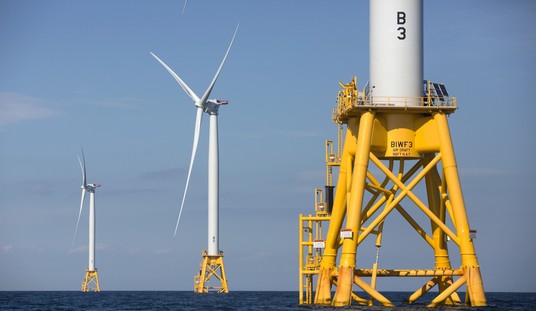Claudia Rosett tells a fascinating anecdote. While at the WSJ she and her colleagues had a discussion with Franklin Raines. At its conclusion, they walked Raines to the door.
What sticks with me in particular, though, is the final scene of that long-ago lunch. The conversation got heated enough so that we continued arguing after Raines rose from the table to go. He was touting his achievements at Fannie Mae; we were fretting that his promises were too good to be true. Susan and I walked out of the conference room together, and watched Raines walk down the hall to the closet where he’d left his coat. We watched him fish out of that closet one of the most gorgeously well-tailored raincoats I’d ever seen. He put on that ultimate designer-job of a raincoat and walked out the door, and as he went, I asked Susan, “How much do you think that raincoat cost.” The gist of her reply (I do not remember her exact words) was: Plenty, and we’re going to pay for it.
And as the scandals broke about Fannie Mae, I thought about that raincoat. … For me, it has become the emblem of those who live well off grand social-engineering schemes that end up bilking ordinary hard-working Americans — Americans who pay their taxes, pay their mortgages or meet the rent, and who once looked forward to more of the genuine prosperity and opportunity that the free-market policies of Reaganomics so richly delivered.
What did it mean, I wondered, to think about the raincoat? Doesn’t Franklin Raines, like any of us, deserve to buy whatever he wants with his money? If I wanted to go out, and improbably buy a raincoat just like it, shouldn’t I be entitled to? Or was it something else?
I think the disconnect arises from the misconception that elitism is a capitalist phenomenon. We expect JP Morgan to wear a top hat, striped pants and twirl a diamond-topped cane, like a caricature of the Boss. But we don’t expect Men of the People to do so. We think they go around in boiler suits eating sandwiches.
Perhaps what Claudia Rossett realized — and what people who hang out with the Development Set ultimately understand — is that saving the world need not mean you eat bread and water. “The poor we will always have with us.” But the same may also be said about our Masters. They’re going to be around for as long as the world turns. The New York Times recently had a piece describing the buying frenzy in luxury goods which attended the National People’s Congress and the Chinese People’s Political Consultative Conference in Beijing.
BEIJING — Last week, a finely dressed Chinese man walked into Louis Vuitton’s flagship store here, seeking the perfect gift for that special someone: a senior government official.
“I tell you, he is at the top,” the man told the sales clerk, as his bodyguard stood nearby. “So what kind of handbag do you think is suitable for him?”
Purchases like this one are part of a two-week shopping spree every March, when up to 5,000 Communist Party delegates from China’s provinces and regions gather in the capital for two annual meetings: the National People’s Congress and the Chinese People’s Political Consultative Conference. Their mission is to assess the nation’s progress and debate public policy.
But while here, the delegates also seek to curry favor with their superiors, the nation’s top leaders, often by showering them with expensive gifts: Gucci handbags, Hermès scarves, Montblanc pens and $30,000 diamond-studded Swiss watches.
Somewhere in Beijing, a coat just like Franklin Raines’ was being purchased as a gift. The answer to my own rhetorical question is a simple one. I don’t resent the fact that Franklin Raines has a nice raincoat, or that he can afford one. What I simply disagree with it is the implication by some advocates of socialism, not necessarily Mr. Raines, that wealth is an evil thing. Because that means I don’t have a right to a designer raincoat. But I do. That’s a simply a demand for equality. And socialism, when you think about it, isn’t a program to make us equal; just one to make some more equal than others.









Join the conversation as a VIP Member